By Danish Reyaz, Maeeshat, Mumbai
West Bengal is a state where the Muslims are in large numbers- nearly 30% of the entire state’s population- but they are also one of the poorest communities in the state, mostly leading pitiable lives.
Once the well-off, service class and intelligentsia from the community migrated to East Pakistan (now Bangladesh) during the partition, the state was left with a vast population of poor Muslims who largely lived in rural areas missing out on proper education and facilities.
No wonder, with time, they started falling off the progress radar while their slide into the abyss of poverty continued unabated.
Since youths lagged in education, there was no formal employment for them; hence they had no options but to become peasants, labourers, menial workers, or artisans. Some had to migrate to neighbouring states in the hope of getting better opportunities and wages.
The condition of urban Muslims in the state was somewhat better, but they still lacked mainstream participation. Hardly 2% of them were graduates. They were nowhere in medical, engineering, and other professions, let alone government services.

M Nurul Islam and Danish Reyaz
Deeply stirred by wretched socio-economic conditions of the Muslims in West Bengal, M Nurul Islam, a University student at that time, endeavoured to educate a handful of students in the Kalatpur Madrasa, situated about 60 kilometers away from Kolkata.
However earnest was his intention for the welfare of Muslims, he had never reckoned that his initiative would become a mission one day and earn him the title of “Sir Syed of West Bengal” for his noteworthy contribution towards bringing about a transformational change in the field of minority education.
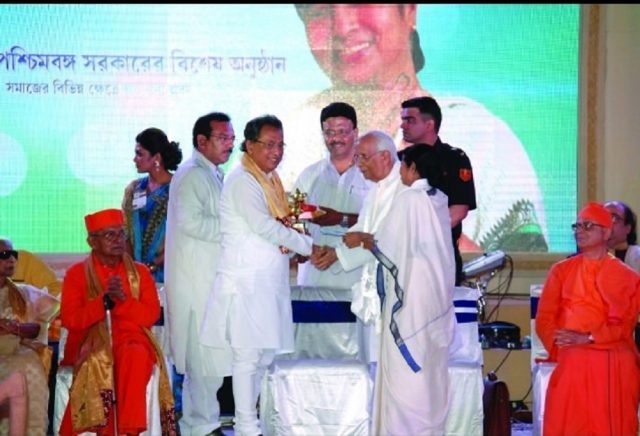
M Nurul Islam receiving the prestigious ” Banga Bhushan Award” from Mamata Banerjee , the chief minister of West Bengal and Governor Keshari Nath Tripathi
From a humble start of teaching within the confine of a small Madrasa-room Nurul Islam today runs Al Ameen Mission, a residential-style education model, expanding leaps and bounds across the states and helping thousands of disadvantaged students to move up the social ladder by ensuring fair access to quality education.
“It is all by God’s grace, and it is people’s support that gives me the motivation to go on. What I am doing is just a small thing compared to what I owe to the community,” says Nurul Islam with his characteristic modest smile that intermittently flickers on his face.
An educationist par excellence for over three decades, Nurul Islam remains soft-spoken with no air of superiority in his demeanor. However, one can easily see the quiet resolve in his eyes to do utmost for uplifting the marginalized.
“If your intentions are good, there is no stopping you,” he says emphatically, again putting on an unassuming smile.
Germination of idea
From very early on in his life, Islam had decided to work towards removing the backwardness among Muslims as he witnessed the community’s debilitating struggle and poverty from close quarters.
Nurul Islam was just in his class 10 in 1976. And at that tender age, he set up the Khalatpur Junior High Madrasa, aiming to empower the poor, backward minority community through education.
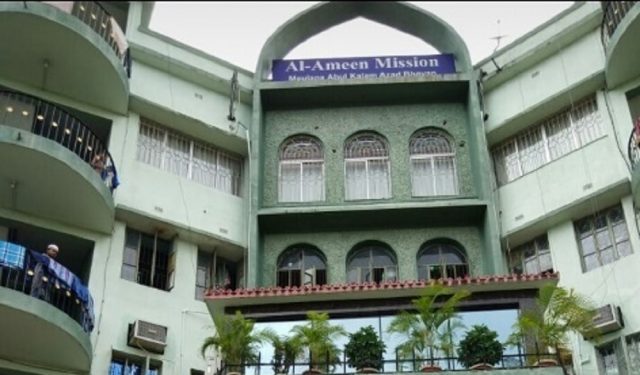
The main campus of Al-Ameen Mission located at Khalatpur village in Howrah district of West Bengal
He says, “The best way to uplift a community from backwardness is to educate them.” And since he was a teacher, he took it upon himself to teach disadvantaged students, albeit a handful at the beginning.
Initially, he had no idea how his endeavour would shape up in the future. In the 80s, while Nurul Islam was a student of Maulana Azad College, he came in contact with his private tutor, Professor A. Chakraborty. The latter would tell him about the lives of Sri Ramakrishna and Swami Vivekananda and the activities of the Ramakrishna Mission. It inspired Nurul Islam a great deal, and he began to feel the need for a similar mission for the Muslim community, and from here, the idea of the Al Ameen Mission germinated.
Besides the Junior High Madrasa, Nurul Islam had also established the Institute of Islamic Culture at Khalatpur in 1984, which was to impart modern education in accordance with Islamic values and principles. But to play a more vital and expansive role in creating awareness among Muslims regarding education, it took the shape of a mission and was renamed Al Ameen Mission at the start of 1987.
Nurul Islam often used to wonder about why, after all, Muslims can’t replicate the idea behind Ramakrishna’s mission in a Muslim setting within their community, especially when Prophet Muhammed (PBUH) has commanded them to acquire knowledge and education at any cost, going even as far as China.
Nurul Islam realised that it was the lack of self-belief and willingness on the part of Muslims that is holding them back. Islam cites Ayat 11 from Surah Ar-ra’d that says, “Indeed, Allah will not change the condition of the people until they change what is in them.”
According to Nurul Islam, this Quranic Ayat has given him the impetus to go ahead with Al Ameen Mission and work to help free Muslims from psychological barriers and financial hurdles in their path to education.
Residential system of education
Since its establishment, Al Ameen Mission has sparked a revolution in West Bengal, changing the lives of students and their families who otherwise wouldn’t have been able to afford quality education for their children.
Al Ameen Mission runs a residential system of education. Talking about the reason behind a residential system, Islam says, “To study, students need a relaxed atmosphere, which they don’t get in their homes amidst the tensions and anxiety arising out of poverty.”
Islam further says, “Teachers are the second parents, and here they are highly dedicated and well-trained. Whether teaching or mentoring, self-less teachers cater to students’ every need in the most effective way. The success of our students is due to the tireless service of these teachers who are working with us regardless of their stature and not-so-sufficient payment.”
Fees and scholarships
The Mission has lenient fee structures, determined as per the financial capacities of the students’ families. 25 percent of impoverished students are exempted from paying any fees, while 40 percent are required to pay half the fee. At the same time, 35 percent of financially sound students pay in full.
The Mission takes full responsibility for the education and upbringing of the poor but deserving students if it deems fit. Nurul Islam says, “We aim to not turn any meritorious students away from our doorsteps due to their incapacity to pay fees.”
Along with scholarships to its resident students, the Mission also provides financial help to poor meritorious students at the local level. Those from Al Ameen who get into medical colleges but are financially weak get full financial support up to nine or ten months from the Al Ameen Mission.
Rapidly growing mission
The journey of Al Ameen Mission started with only seven students, and today it houses about 18,000 students on 70 campuses (63 Bengali medium and 7 English medium) spread across the state. More than 1500 students are alone being educated in the Khalatpur headquarter that comprises four campuses. It also has four campuses outside the state: One in Ranchi and Patna, whereas two other campuses are in Tripura and Indore (MP).
While the Mission provides schooling education from class V to XII, it also has multiple residential coaching facilities for medical, engineering, and other jobs aspirants throughout West Bengal and in a few cities in Bihar, Jharkhand, Tripura and Madhya Pradesh.
“Our biggest achievement is our ability to penetrate rural areas which have lots of talents shrouded in poverty. With several branches opened in these backward areas, we are now able to bring deserving students into the fold of the Al Ameen Mission family,” Nurul Islam says with satisfaction. “But a lot remains to be done in these areas,” he adds, quickly with a changing note.
Every year is a new milestone
So far, the performance of Al Ameen Mission has been awe-inspiring, with results getting better and better every year. This year a total of 518 students of Al-Ameen have cleared NEET, all-India written test for admission to medical colleges.
Last year a total of 516 students were successful in NEET, and in 2019 this figure was 407. As many as 370 students were successful in 2018; 115 in 2017; 293 in 2016; 223 in 2015; and 212 in 2014.
The Mission has about 31,000 alumni, including 7,000 in the medical profession and about 5,000 in engineering. Many alumni are in various other fields such as civil services, academia, law, and media.
Nurul Islam shares an interesting fact. He says, “From a paltry share of 2-3% of the Muslims in medicines in the state, the representation has now increased to 25% paired with a significant rise of share in engineering as well.”
Funds and resources
When Nurul Islam set out for this noble Mission, he had no idea about the sources that might help him financially. Initially, finance came in the form of collecting a fistful of rice from every home in Khalatpur “I would then sell the rice at the local market and would use the money to run the Institution,” recalls Islam.
Since it was not enough for running the activities of the Mission, he then started approaching local businessmen for zakat (2.5 percent of the income that Muslims take out annually to distribute among the poor and needy).
As the time progressed and Al Ameen Mission became a household name for its recurring success stories, zakat donations started flowing in from across the state and the country.
While the zakat still serves as the primary donation to the Mission, people come forward to help in material as well, like donating wheat and paddies for foods and cement and bricks for construction works. Many people are also donating lands to the Mission to help it expand in different areas.
Though it is an NGO, there is no direct government funding, but it has received funds from the office of Minority Affairs for its coaching programs. In the initial years, major funds were received from Maulana Azad Education Foundation, New Delhi, and G.D Charitable Society, Murshidabad. Sri Mrinal Sen, an eminent filmmaker and the then Rajyasabha MP, also provided grants to the Mission through the MPLADS fund. The Mission doesn’t accept foreign funds.
To support its scholarship programmes, the Mission has roped in some social and charitable organisations. Contributions are also received from its alumni who are rich and well placed in their lives.
Nurul Islam says, “Mission enjoys exemption under section 80G of I.T. Act so generous citizens can come forward and donate freely although that is not enough for the magnitude of works Mission is handling.”
Plans down the road
Thanks to the help from the state government and the Muslim community at large, the Al Ameen Mission is on course to expand further. A new campus for about 200 orphan boys and girls is already underway in Khalatpur, which is to be operational next year. At present, various campuses across the state have 900 orphans, but plans are afoot to establish separate accommodations for these orphans in each campus to give them special care.
On a plot of 2 acres, allotted by the state government, in New Town, Kolkata, a new project is coming up that will accommodate about 700 aspirants of various competitive exams and research scholars. The facility will also serve as a training center for teachers and administrative staff under one roof. The project is due to be completed by 2023.
Also on the cards is a coaching center for UPSC and NEET (PG) in 1.39-acre land in Ghaziabad, a few kilometers from the national capital. It will be functional as early as 2024.
“Although we are making our presence felt in a few states, currently we have no plans to go pan-India in a full-fledged manner. Our full focus is on West Bengal right now. A lot of works are still to be done here.” Islam says as a man with utmost clarity in vision. He is not the kind of man to jump to too many projects at once to achieve personal glory. He is thoroughly dedicated to the welfare of the poor and possesses a lot of patience to achieve the outcome of his endeavours.
An example to emulate
Even if Al Ameen Mission is not going pan-India yet, it has created an example for others to emulate. Encouraged by its success, several organisations of similar models have sprung up in different parts of the state and elsewhere in India, ultimately proving to be a boon for the Muslim community.
“We Muslims have lagged so much behind in education that one man or one institution can’t bring about a sudden change. More people need to come forward to work in this direction for a tangible result,” says Nurul Islam.
“But I am glad we have inspired so many people to embark upon this noble mission now,” he adds in the end with a hopeful lilt in his voice.

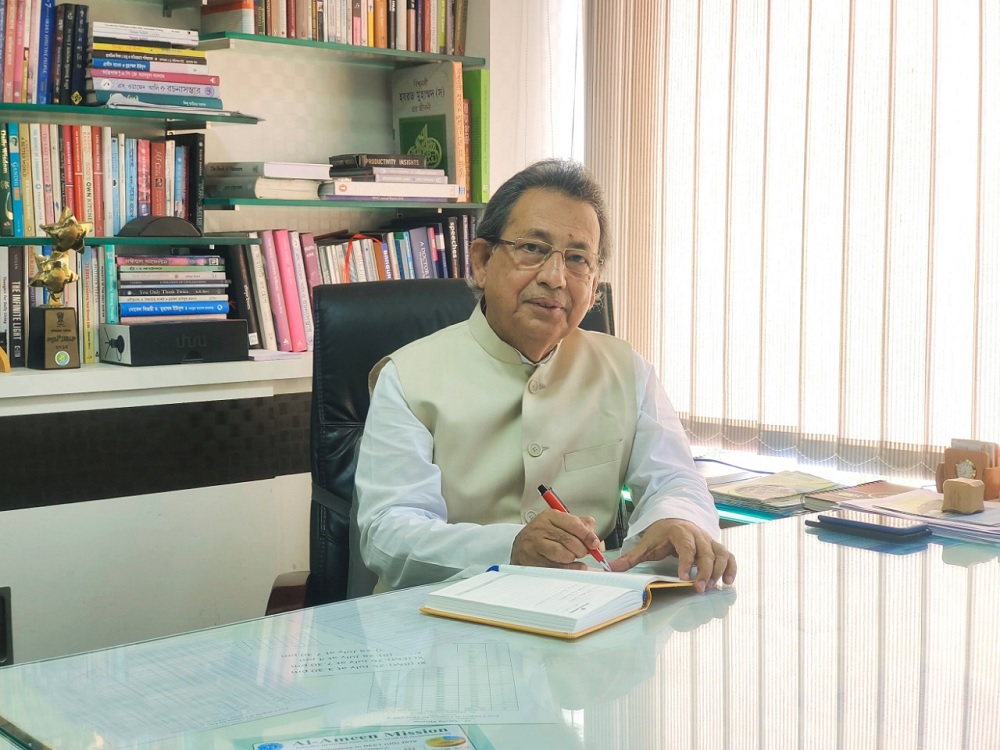
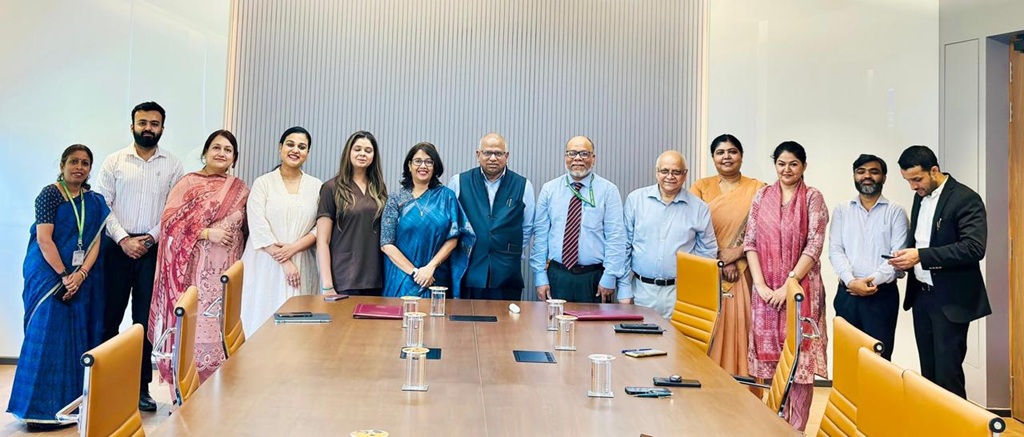
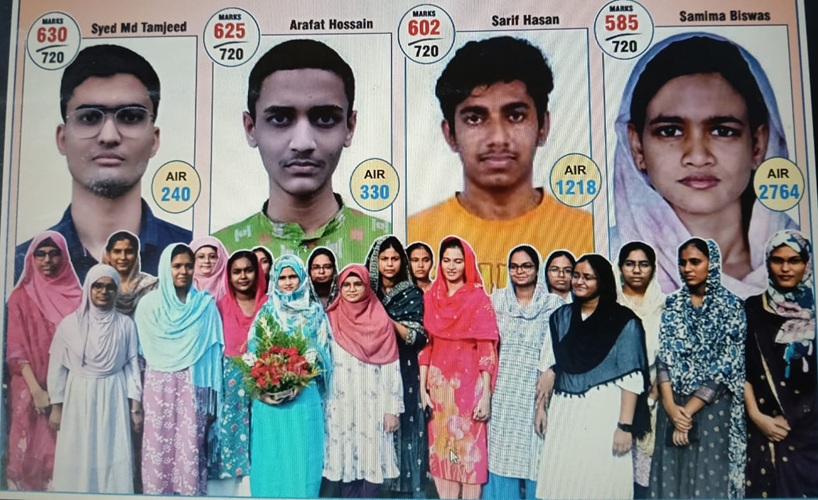
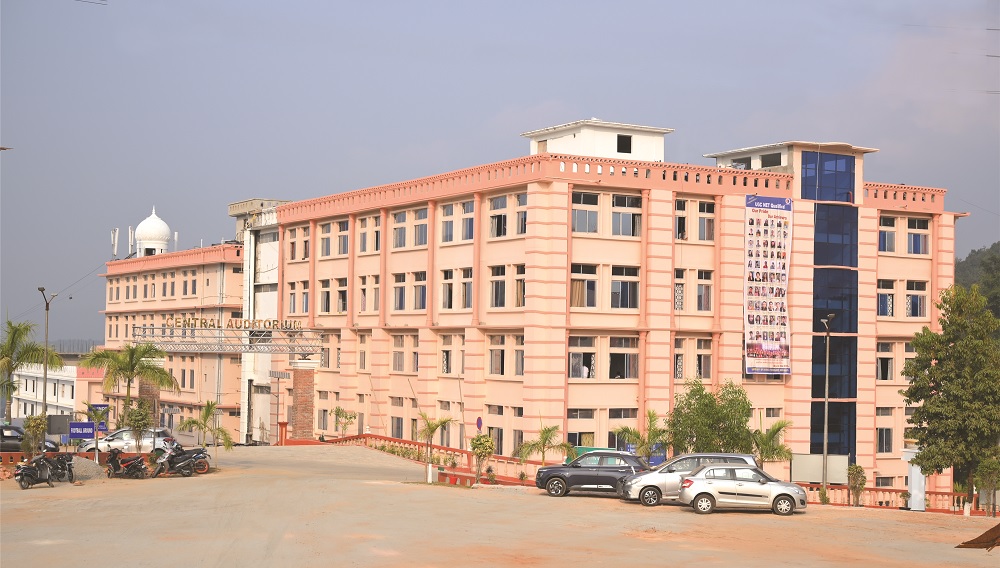
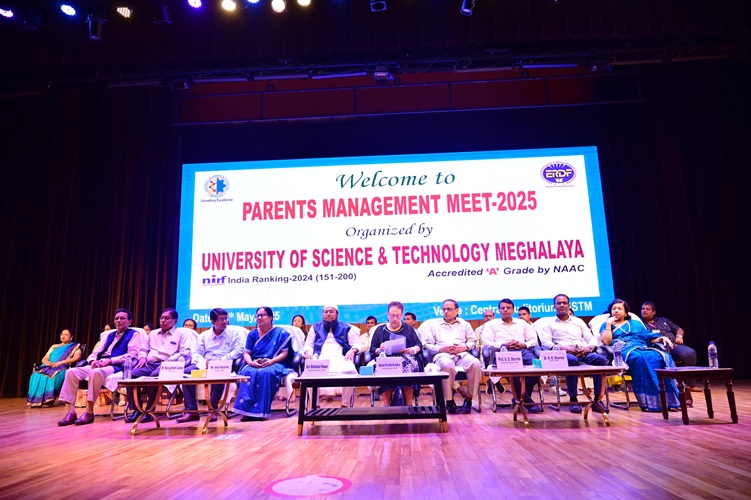
0 Comments